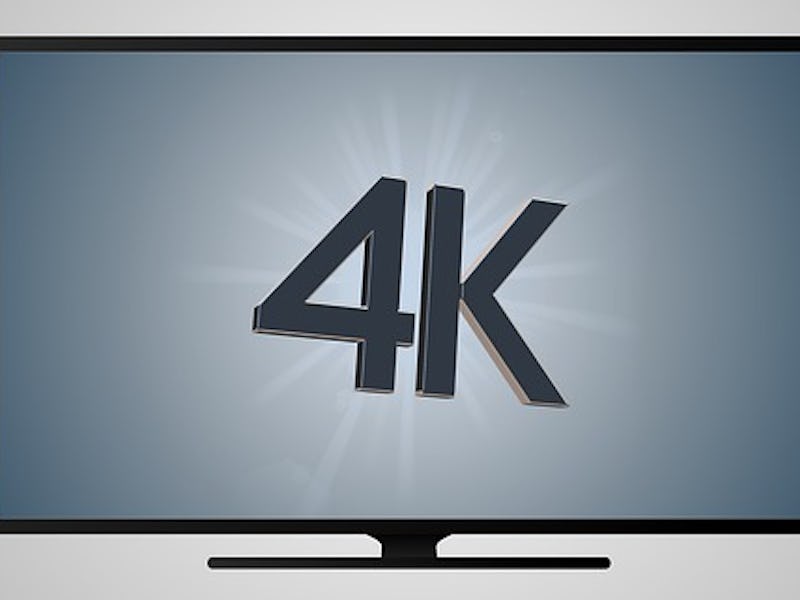If, like me, you have been exclusively using your computer as a television for the last 5 or so years, buying an honest to god television can seem like a daunting task. There are potentially dozens of questions to ask before a purchase is made, but if you don’t know anything about televisions, where do you even start? What makes a television better than its competition? What specifications are necessary to look for? Is there a television that is better for watching sports compared to a television that is designed for a consumer that predominately binges Netflix shows?
You reach out to your friend that recently purchased a 4K television and you ask them, “What made you pick this particular television? What does it do and do I need it?” Unless your friend is some kind of advanced technology guru—deeply entrenched in the world of screens—you’ll probably get an answer along the lines of, “it’s a better picture than anything I’ve seen before and it didn’t cost much more than a television of traditional quality.”
If you’re like me, that answer hasn’t sold you on a 4k television yet so you turn to the internet for an answer. And maybe that’s how you got here. So, in simplest terms, a 4k television is what television manufacturers call “Ultra HD” and what that means is compared to traditional HD televisions that have a resolution of 1080 pixels, 4K televisions have a resolution closer to 4000 pixels rougly 4 times the definition amounting to 8 million total pixels compared to 1080p’s roughly 2 million.
Of course, now you want to know if you can tell the difference in person and the short answer is yes, if you opt for a larger television. On smaller televisions, the difference is less noticable and if you sit far away from your screen, it’s less noticable still. Traditional HD isn’t on its way out either, but if you watch a lot of sports or you really enjoy the nuances of film on the big screen, 4K is the way to go.
##Why You Want It: ## Ultra HD televisions offer enhanced viewing experience. Consumers who took the plunge reported significantly less glare than traditional HD plasma options, less line bleed than the competition as well as signifcantly blacker blacks and whiter whites.
Toshiba 4K UHD Smart TV $299.99
Important Spec 1:
Many 4K and Ultra HD televisions come with built-in Smart TV capabilities and additional HDMI ports. What this means is for the extra money one might spend on an UHD television, they may be able to shave hundreds off their monthly expenses by cutting the cord with run of the mill cable. With Smart TVs, consumers can connect to exisiting Hulu, Amazon Prime or Roku accounts where they are able to stream thousands of movies and tv shows without the extra cost and without having to fumble with multiple cords and too few HDMI ports.
4K TCL Roku TV $349.99
Important Spec 2:
If you own a smart phone, chances are you have taken a photo at some point at has been labeled as HDR and maybe you didn’t know what it meant then. Not all UHD televisions come with HDR (high dynamic range), but when they do, you’ll notice the difference. HDR enhances contrast on the screen as well as optimized brightness levels to bring every viewer a better overall picture.
Skyworth 4K Android TV $269.99
Important Spec 3:
In the world of HD televisions, there are two possible refresh rates. Refresh rates refer to how many frames per second a television can display. When shopping for an UHD television, you’ll mostly see refresh rates of 60Hz and 120Hz—anyone who tries to sell you something with a higher refresh rate is likely full of hot air because they’ve yet to be made.
LG 4k Ultra HD Smart OLED TV $2,196.99
Best Deal on Amazon:
Equipped with Google Assistant, Dolby HDR, Nano Cell Display, 4 HDMI ports, 3 USB ports and the option to connect directly to the internet via LAN wire for potentially faster speeds, there really isn’t a better option if you can afford to splurge.
LG 55-In 4K Ultra HD Smart TV $796.99
Best Value:
There’s nothing wrong with a budget television system if that is where your budget is. These days, competitor brands are steadfast getting better to accomodate an ever-changing and fast paced technological climate. Equipped with 4 HDMI ports like much of the competition, the lack of a Smart TV component will not be missed. Keep cable plugged in, or buy a stand alone Roku, Fire Stick or Chromecast to fill in the gaps of smart technology and there is virtually no difference between the budget option and the luxury competitors.
Naxa 4K Ultra HD TV $269.99
